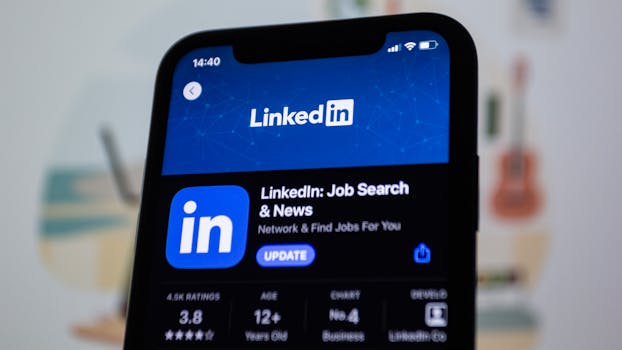Anúncios
In today’s fast-paced digital landscape, app reviews have transcended their initial role, evolving into a crucial component of both app discovery and the overall user experience. With millions of applications vying for attention across various app stores, potential users are increasingly dependent on these reviews to help guide their decisions. This reliance reveals a broader trend: users not only consume review content but actively engage with it, making it imperative for developers to comprehend the underlying factors that drive review behaviors among their audience.
One particularly concerning trend is the alarming rise of fake reviews within the app ecosystem. In a competitive environment where visibility often dictates success, some developers resort to unethical practices by generating artificial reviews, aiming to artificially inflate their app rankings. This deceptive strategy fundamentally undermines the integrity of app reviews, subsequently leaving users unprotected and potentially misleading them in their decision-making processes. The prevalence of fake reviews spans multiple platforms, emphasizing the necessity for both users and app stores to devise and implement robust mechanisms for identifying and combatting this growing trend.
In contrast to the issue of fake reviews, there exists an increasing demand for authentic and genuine feedback from users. As a result, developers are now more inclined to engage directly with their audience, recognizing the importance of building meaningful relationships with them. Users express appreciation when developers take the time to respond to reviews, whether they are positive or negative. This form of engagement fosters a sense of community and signals to users that their opinions are valued and important. Consequently, when users feel their feedback is acknowledged, they are more likely to provide constructive and thoughtful reviews, which ultimately enhances the app’s overall reputation within the marketplace.
Moreover, the very manner in which users leave app reviews has undergone a notable transformation in recent years. Gone are the days when the traditional five-star rating system sufficed; users are now gravitating toward providing richer forms of feedback. Many individuals are more willing to compose detailed comments about their experiences, including constructive criticism and suggestions for improvement. This shift in behavior ultimately benefits potential users, granting them deeper insights into an app’s functionality and quality and promoting a more informed decision-making process.
In the contemporary review landscape, visual content is becoming increasingly influential. Users today are not only leaving text-based reviews but are also incorporating screenshots and videos to illustrate their experiences vividly. Such visual aids enhance the storytelling aspect of app reviews, allowing prospective users to grasp the app’s value more easily. This trend underscores the importance of visual communication in the digital era and highlights a growing demand for engaging content in reviews to truly resonate with audiences.
Anúncios
Conversely, developers face the challenging reality that a single negative review can significantly impact an app’s future downloads. Research indicates that potential users may shy away from downloading an app after encountering even one unfavorable comment, even if the majority of reviews are overwhelmingly positive. This phenomenon underlines the necessity of proactively addressing and mitigating negative reviews. Developers who craft thoughtful responses can often transform frustrated users into loyal customers, thereby establishing a sense of trust between their audience and themselves.
In this evolving context, app store optimization (ASO) has adopted new dimensions driven by the importance of user reviews. Developers are now investing time and resources into refining their app listings to attract more positive feedback. This involves crafting compelling app descriptions, refreshing visuals, and ensuring the interface remains user-friendly. By encompassing these aspects, developers attempt to elevate their app’s overall perception and ranking in app stores. Understanding the role that reviews play in app discovery encourages developers to perpetually update their apps, ensuring they continue to meet and even exceed user expectations.
Another emerging trend within app reviews is the increased utilization of review aggregation tools by developers. These tools offer essential support in monitoring user feedback, enabling developers to analyze sentiments across numerous platforms. By leveraging data analytics, developers can identify common pain points and areas ripe for improvement as highlighted in user reviews. Armed with actionable insights, developers can prioritize necessary updates and modifications, ultimately enhancing overall user satisfaction and engagement.
Additionally, the concept of social proof has gained significant traction as a key strategy for bolstering positive reviews. Developers are actively utilizing testimonials and spotlighting positive user experiences in their marketing efforts. By emphasizing user satisfaction through social media campaigns or directly within their app information, they can attract new downloads while building credibility in the marketplace. Given that potential users are often swayed by the opinions of others, harnessing this trust translates directly into higher conversion rates and an expanded user base.
As the demand for mobile applications continues to surge, the significance of niche apps has also become more pronounced. Niche apps cater to specific audiences and particular interests, often resulting in highly engaged user bases. Users searching for targeted solutions tend to leave more detailed and passionate reviews. By understanding their audience and tailoring experiences to resonate deeply with their specific needs, developers can create apps that elicit rich feedback and cultivate a loyal following.
The discourse surrounding app reviews is increasingly delving into ethical considerations, especially with regard to user data and privacy. Users have grown more cautious about the information they share, leading to an elevated desire for transparency from app developers. Those who clearly communicate their data use and privacy policies stand to build trust and encourage users to leave more honest, favorable reviews as a result. Establishing an open dialogue regarding data practices conveys that user privacy is a top priority for developers.
In parallel, the process of writing a review has evolved, becoming more accessible to a broader audience thanks to advancements in voice-to-text technology. Many users are now leveraging this feature, allowing them to express their experiences with apps verbally, thereby leaving spoken rather than written reviews. This shift infuses a more personal touch into the feedback process, permitting users to articulate their thoughts without the constraints of typing—a welcomed change for those who may find it cumbersome.
Moreover, the rise of influencer marketing is steadily permeating the realm of app reviews. Influencers, who boast substantial followings on various platforms, are increasingly using their influence to review apps and share their personal experiences. Such endorsements can significantly sway public opinion and drive downloads, prompting developers to consider strategic partnerships with influencers to tap into their extensive audiences and gain credibility through authentic recommendations. Nevertheless, developers must exercise caution; while influencers can create positive impacts, they must also be transparent about their affiliations to avoid misleading potential users.
Authenticity becomes a critical issue when influencers review an app for monetary gain. Readers are evolving to become more adept at recognizing inauthentic endorsements, which can lead to backlash against insincere promotions. As such, it is crucial for developers to navigate influencer partnerships thoughtfully, ensuring genuine engagement and enthusiasm for the product while upholding the value of authentic feedback. The key lies in creating organic partnerships that resonate with both the influencer and their audience.
As user expectations continue to evolve, so too does the landscape of app reviews. Users are increasingly expecting developers to actively listen to their feedback and act upon it. They anticipate timely updates and visible improvements that reflect their input. Developers who fail to adapt accordingly may risk alienating their audience and undermining the trust they’ve worked so hard to establish. The symbiotic relationship between user feedback and developer responsiveness is becoming a cornerstone of a successful app strategy.
One vibrant area within this evolving landscape is the appeal of gamification when it comes to encouraging app review participation. Many applications are beginning to integrate gamification elements, motivating users to contribute to review activities by rewarding them for leaving feedback. Such incentivization can lead to higher engagement rates while fostering a sense of loyalty among users. When users receive tangible rewards for their contributions, it can effectively build a community around the app, enhancing overall user satisfaction.
Equally noteworthy is the trend of app review contests, where developers invite users to submit their reviews for a chance to win exciting prizes. These contests can bolster user engagement and result in a notable increase in both the quantity and quality of app reviews. However, developers must diligently ensure that these marketing tactics remain compliant with app store policies to avoid any repercussions or penalties resulting from unethical practices.
In summary, the landscape of app reviews is in a state of constant flux, molded by technological advancements and changing user behaviors. Developers must remain vigilant in their understanding of these shifts, employing strategies that encourage user engagement while ensuring the authenticity of their review processes. The intricate interplay of user expectations, ethical considerations, and innovative engagement approaches will shape the future trajectory of app reviews, ultimately determining their effectiveness.
As developers navigate this ever-changing landscape, they are tasked with balancing the pursuit of positive feedback with the ethical responsibility of fostering transparent and genuine communication with users. By prioritizing authenticity and emphasizing transparency, developers can cultivate a healthy ecosystem in which constructive feedback can thrive. This attentive approach not only enhances user experience but also serves as a foundational element for the sustained success and growth of applications in an increasingly competitive market.
By comprehensively understanding and adapting to these emerging trends, developers can significantly enhance their applications while ensuring long-term user satisfaction. The effective management of app reviews today paves the way for innovative advancements in user engagement and satisfaction in the future, ultimately benefiting the entire app development community as it advances in tandem with user expectations. The journey forward entails continuous learning, adaptation, and dedication to delivering value that resonates with users.



